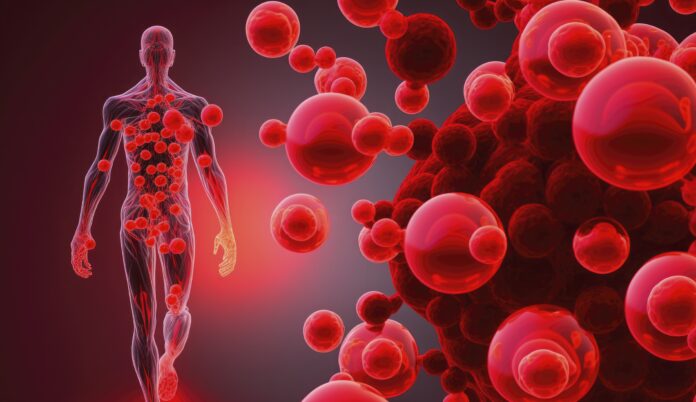Researchers have discovered a form of B12 deficiency caused by autoantibodies specifically impacting the central nervous system. This was identified while investigating an unusual case of neurological symptoms in a single patient. The same autoantibody was found in a small percentage of healthy individuals and was nearly four times more common in patients with neuropsychiatric systemic lupus erythematosus (SLE).
Lead author Dr. John Pluvinage, a neurology resident at the University of California San Francisco, initially did not expect this single investigation to uncover a broader phenomenon. “It began as a case study driven by scientific curiosity,” he said.
Dr. Betty Diamond, director of the Institute of Molecular Medicine at the Feinstein Institutes for Medical Research, praised the study as uncovering another example of diseases where antibodies in the brain cause issues.
The study, published in Science Translational Medicine, began in 2014 with a 67-year-old woman experiencing speech difficulties, ataxia, and tremors. Despite normal blood B12 levels and negative tests for known autoantibodies, she participated in a study using phage immunoprecipitation sequencing to identify new autoantibodies.
Pluvinage explained that this technology allowed the team to screen for autoantibodies by displaying peptides across the human proteome and mixing them with patient antibodies. They discovered the woman had autoantibodies targeting CD320, a receptor crucial for cellular B12 uptake. Although her blood B12 was normal, her cerebrospinal fluid (CSF) B12 was nearly undetectable. The researchers found that these autoantibodies impaired B12 transport across the blood-brain barrier (BBB).
Treatment with immunosuppressants and high-dose B12 supplementation improved her CSF B12 levels and clinical symptoms.
Further testing of 254 other individuals in the neuroinflammatory disease study revealed seven with CSF anti-CD320 autoantibodies, four of whom had low CSF B12. Among healthy controls, anti-CD320 seropositivity was 6%, similar to the 5.7% positivity rate in a multiple sclerosis cohort. In patients with neuropsychiatric SLE, the autoantibody prevalence was nearly four times higher (21.4%) compared to those with non-neurologic SLE (5.6%).
The clinical significance of anti-CD320 in healthy individuals remains uncertain. Diamond noted that some people with autoantibodies do not develop disease, for reasons yet unknown. Pluvinage plans to monitor seropositive healthy individuals to observe any future neurological changes.
The researchers also hypothesized that an alternative receptor might compensate for B12 uptake in the blood, identifying the low-density lipoprotein receptor as a possible pathway using CRISPR screening.
As reported by Medscape, these findings suggest a model where anti-CD320 impairs B12 transport across the BBB, leading to autoimmune B12 central deficiency (ABCD) with neurological but not peripheral symptoms.
























